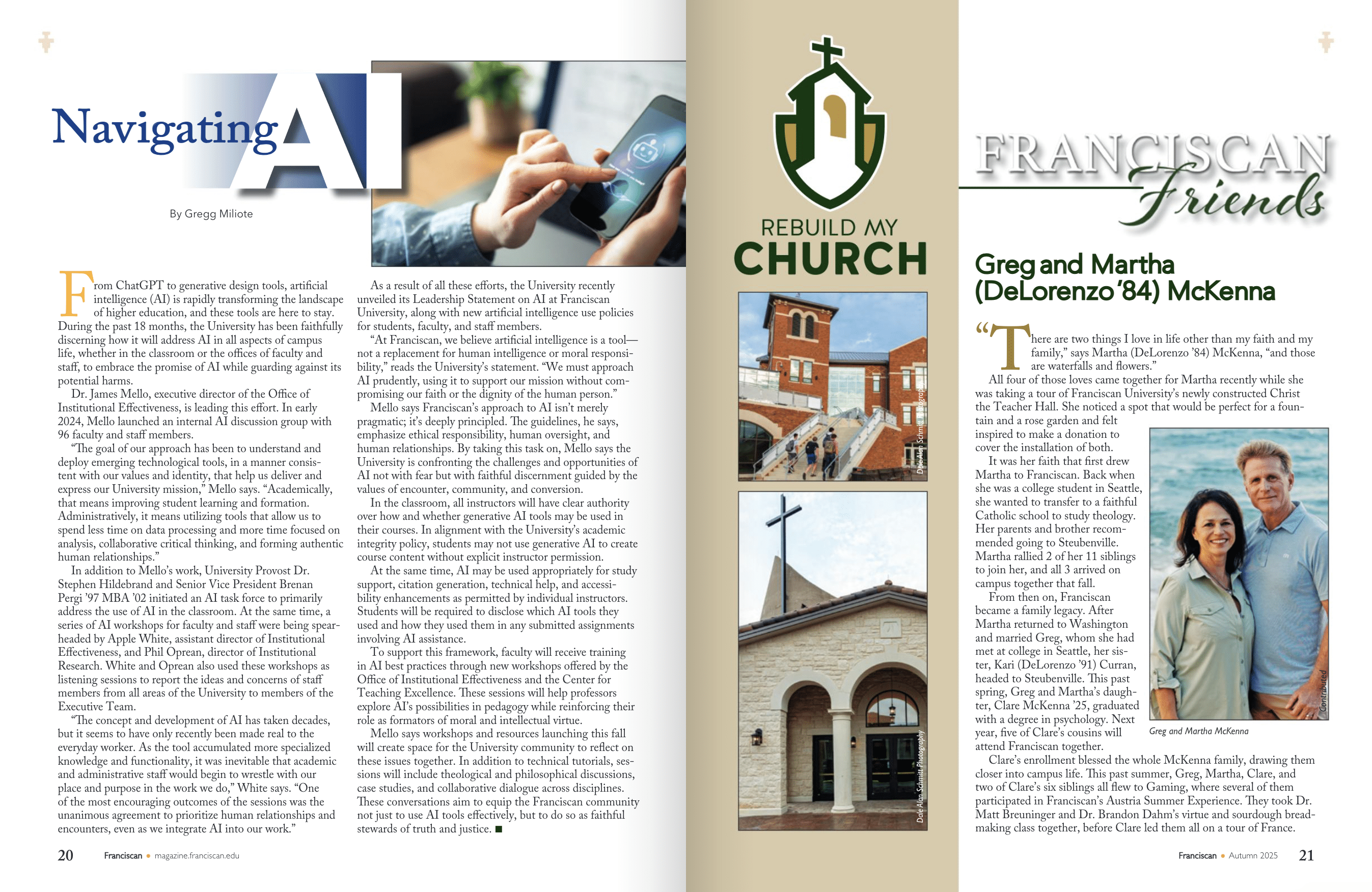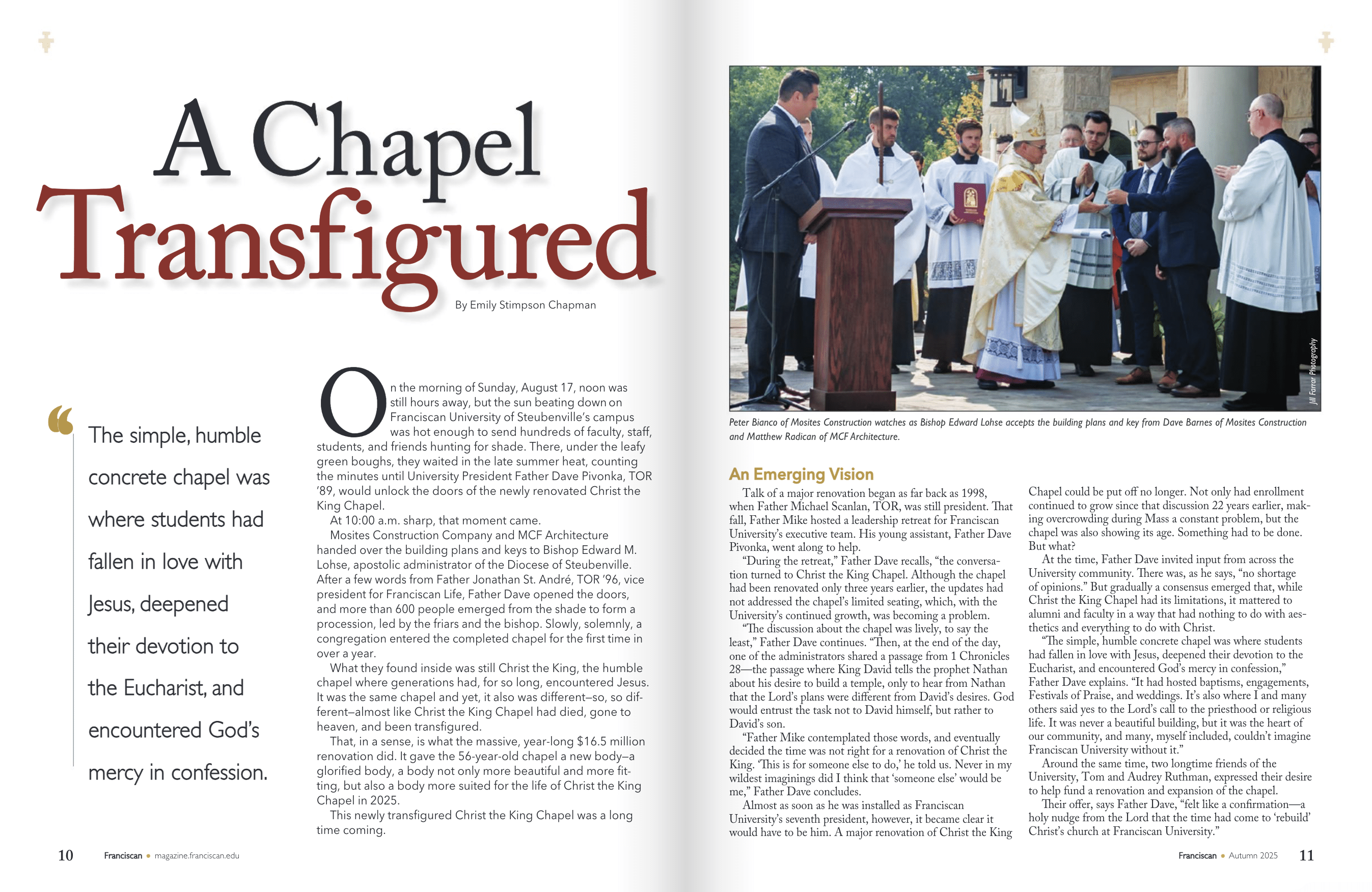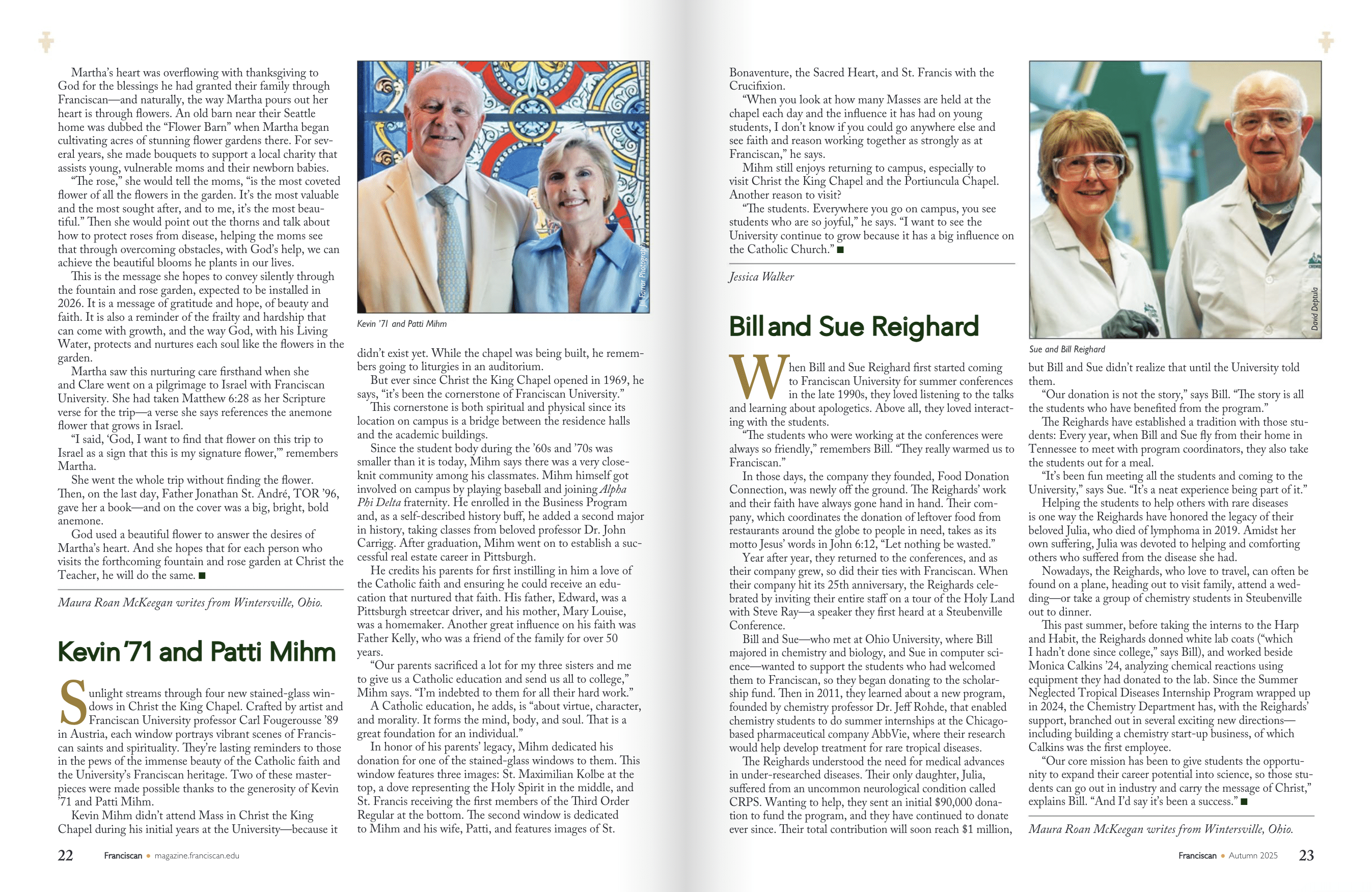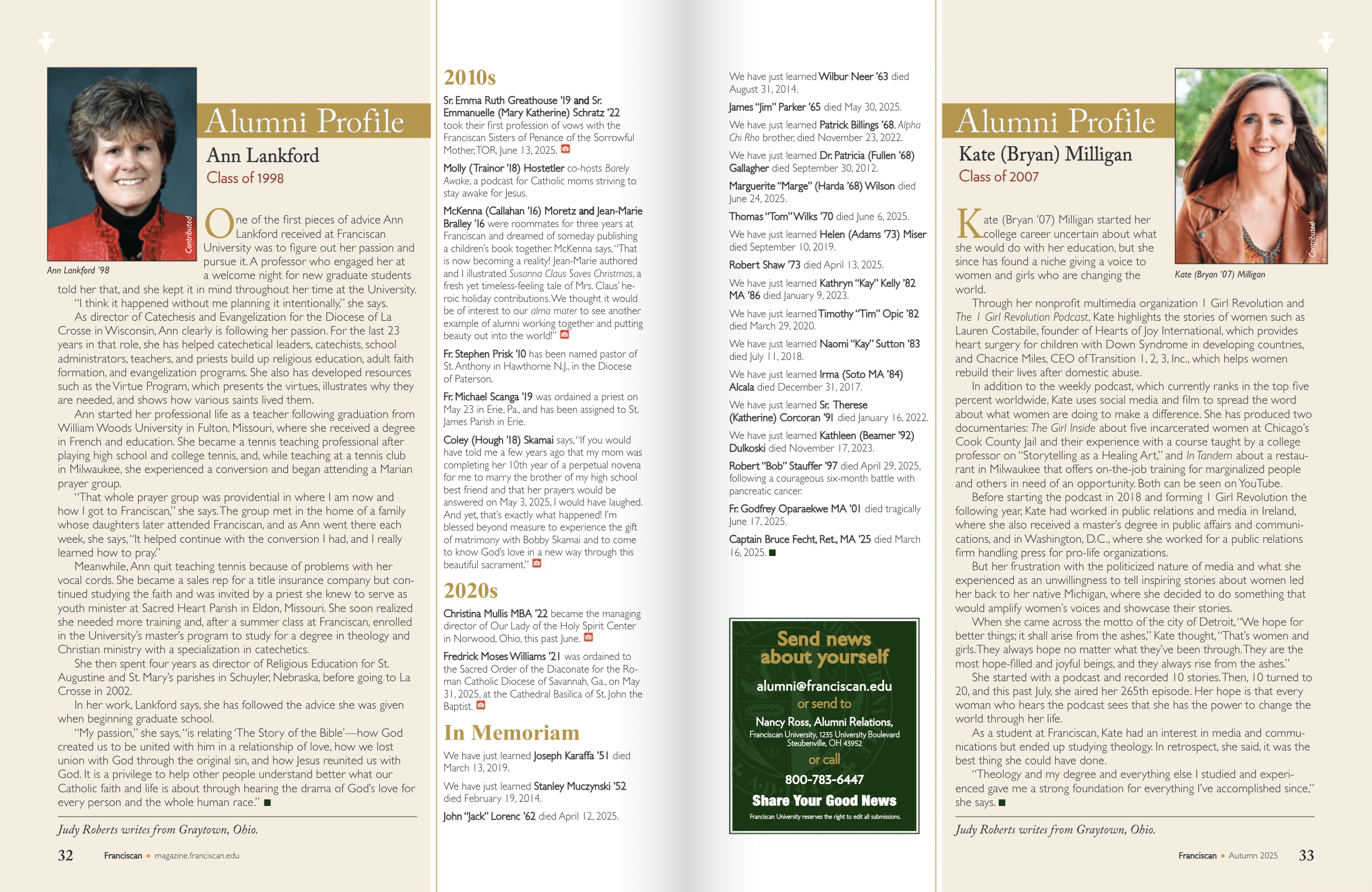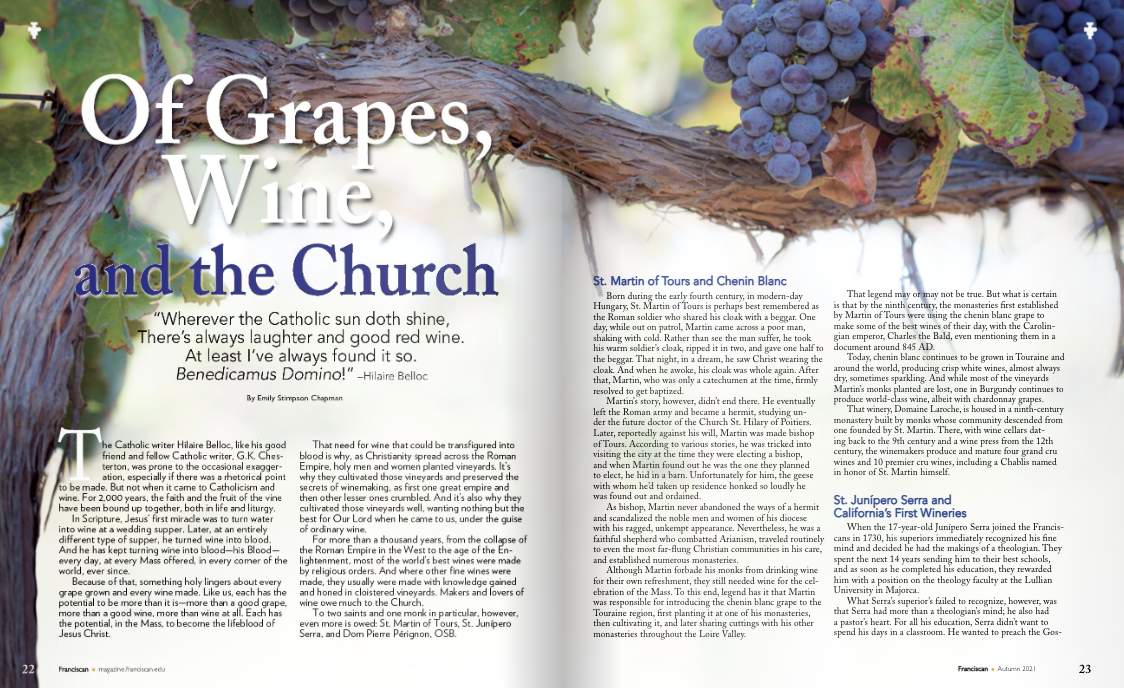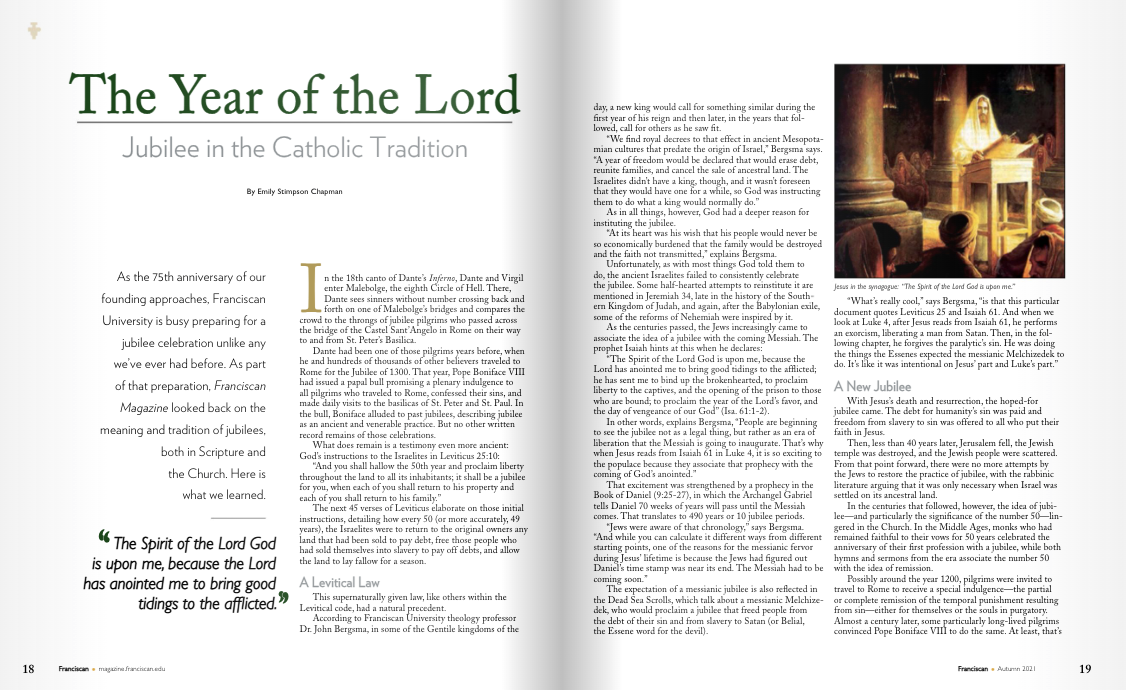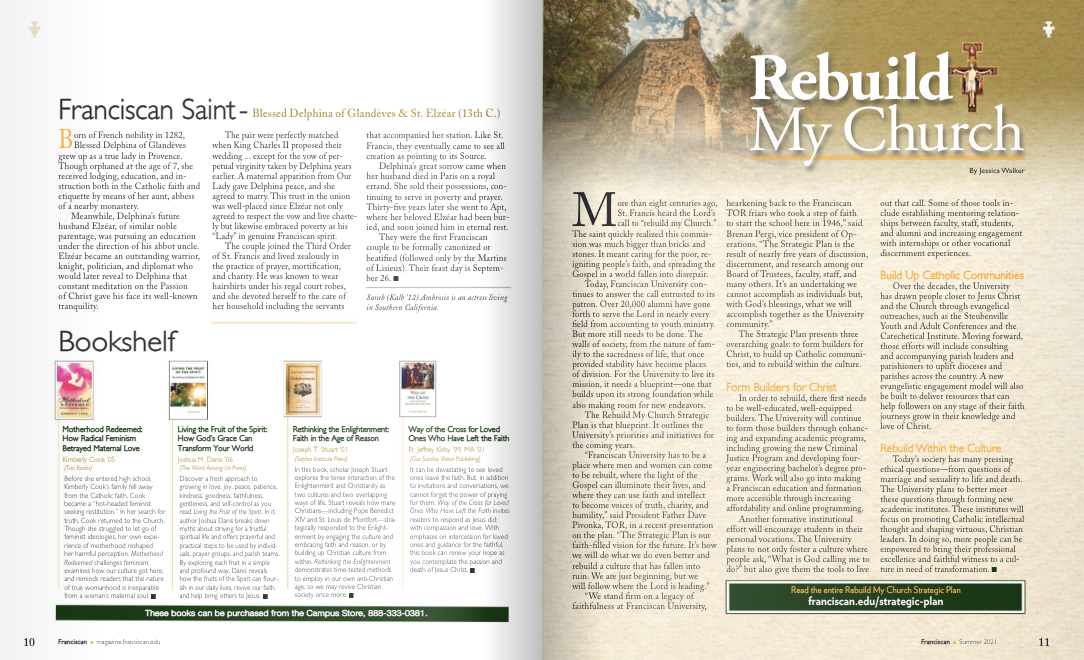From ChatGPT to generative design tools, artificial intelligence (AI) is rapidly transforming the landscape of higher education, and these tools are here to stay. During the past 18 months, the University has been faithfully discerning how it will address AI in all aspects of campus life, whether in the classroom or the offices of faculty and staff, to embrace the promise of AI while guarding against its potential harms.
Dr. James Mello, executive director of the Office of Institutional Effectiveness, is leading this effort. In early 2024, Mello launched an internal AI discussion group with 96 faculty and staff members.
“The goal of our approach has been to understand and deploy emerging technological tools, in a manner consistent with our values and identity, that help us deliver and express our University mission,” Mello says. “Academically, that means improving student learning and formation. Administratively, it means utilizing tools that allow us to spend less time on data processing and more time focused on analysis, collaborative critical thinking, and forming authentic human relationships.”
In addition to Mello’s work, University Provost Dr. Stephen Hildebrand and Senior Vice President Brenan Pergi ’97 MBA ’02 initiated an AI task force to primarily address the use of AI in the classroom. At the same time, a series of AI workshops for faculty and staff were being spearheaded by Apple White, assistant director of Institutional Effectiveness, and Phil Oprean, director of Institutional Research. White and Oprean also used these workshops as listening sessions to report the ideas and concerns of staff members from all areas of the University to members of the Executive Team.
“The concept and development of AI has taken decades, but it seems to have only recently been made real to the everyday worker. As the tool accumulated more specialized knowledge and functionality, it was inevitable that academic and administrative staff would begin to wrestle with our place and purpose in the work we do,” White says. “One of the most encouraging outcomes of the sessions was the unanimous agreement to prioritize human relationships and encounters, even as we integrate AI into our work.”
As a result of all these efforts, the University recently unveiled its Leadership Statement on AI at Franciscan University, along with new artificial intelligence use policies for students, faculty, and staff members.
“At Franciscan, we believe artificial intelligence is a tool— not a replacement for human intelligence or moral responsibility,” reads the University’s statement. “We must approach AI prudently, using it to support our mission without compromising our faith or the dignity of the human person.”
Mello says Franciscan’s approach to AI isn’t merely pragmatic; it’s deeply principled. The guidelines, he says, emphasize ethical responsibility, human oversight, and human relationships. By taking this task on, Mello says the University is confronting the challenges and opportunities of AI not with fear but with faithful discernment guided by the values of encounter, community, and conversion.
In the classroom, all instructors will have clear authority over how and whether generative AI tools may be used in their courses. In alignment with the University’s academic integrity policy, students may not use generative AI to create course content without explicit instructor permission.
At the same time, AI may be used appropriately for study support, citation generation, technical help, and accessibility enhancements as permitted by individual instructors. Students will be required to disclose which AI tools they used and how they used them in any submitted assignments involving AI assistance.
To support this framework, faculty will receive training in AI best practices through new workshops offered by the Office of Institutional Effectiveness and the Center for Teaching Excellence. These sessions will help professors explore AI’s possibilities in pedagogy while reinforcing their role as formators of moral and intellectual virtue.
Mello says workshops and resources launching this fall will create space for the University community to reflect on these issues together. In addition to technical tutorials, sessions will include theological and philosophical discussions, case studies, and collaborative dialogue across disciplines. These conversations aim to equip the Franciscan community not just to use AI tools effectively, but to do so as faithful stewards of truth and justice.
Learn more about the ethics of AI in the Purposeful Lab episode, “A Crash Course in AI” with Dr. Dan Kuebler and Dr. Fernanda Psihas.





